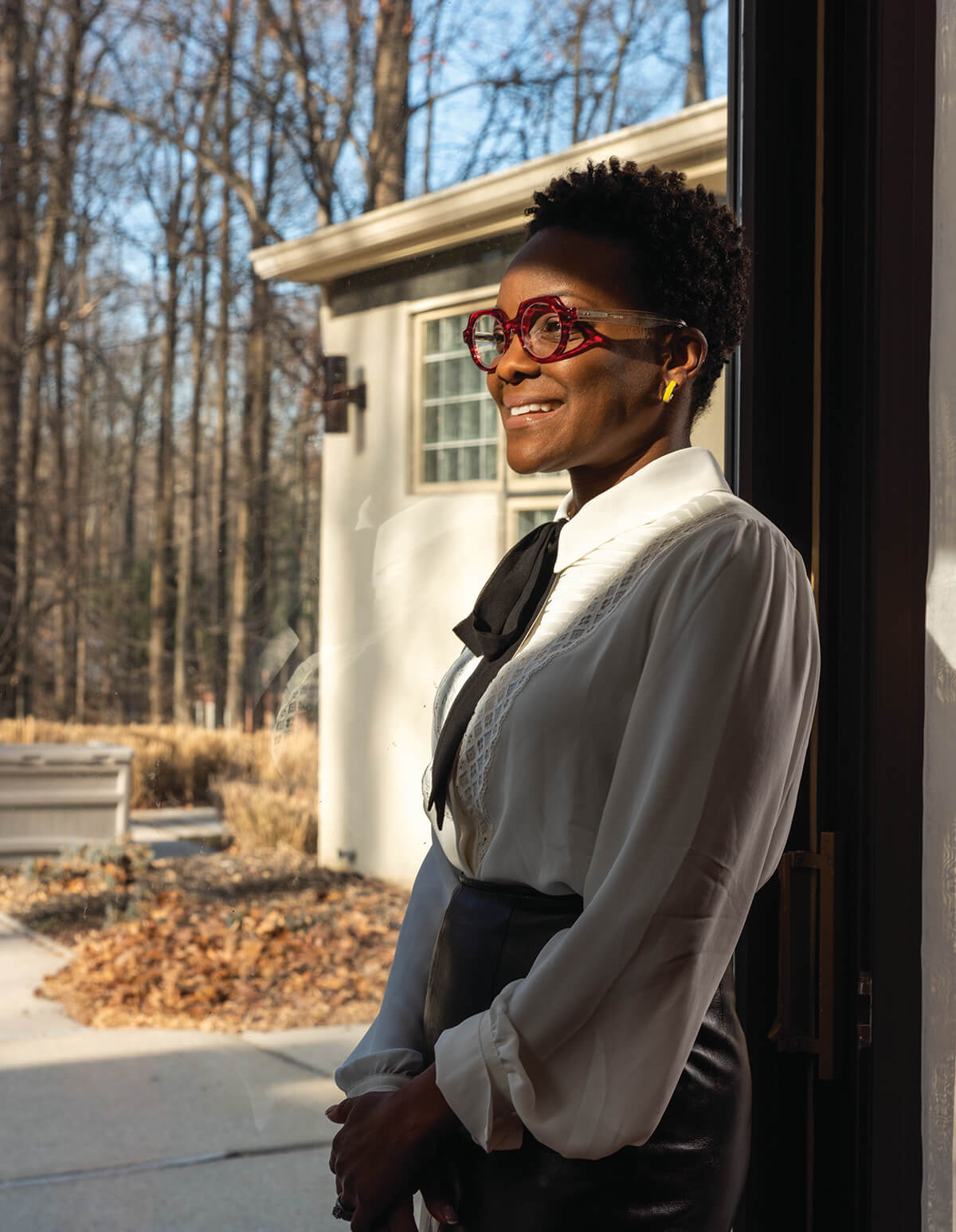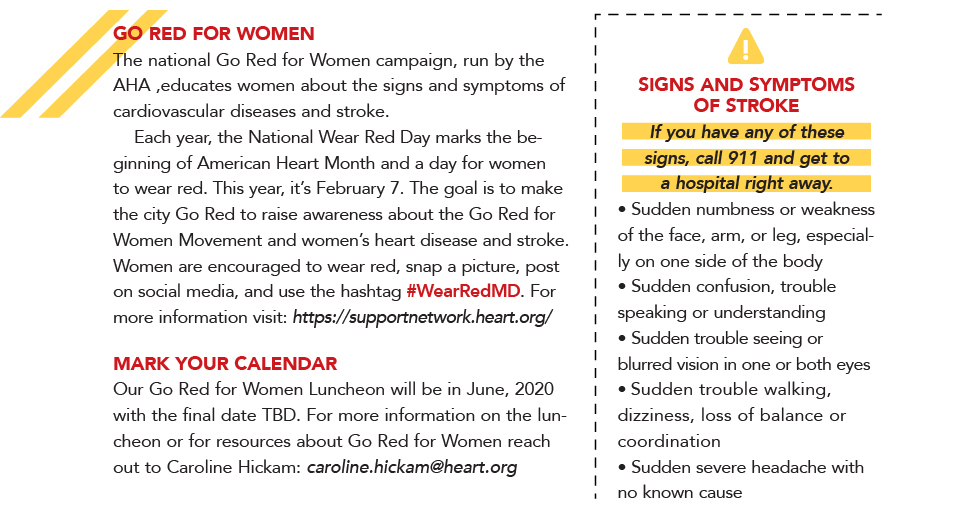Special Section
Taking the Symptoms to Heart
Feel something, say something: Here’s why women’s cardiac disease is so dangerous.
By Alice Shapin —
In early 2017, if you asked 44-year-old Cherée Johnson, “Do you think you are healthy?” She would have answered without hesitation, “Absolutely.” Johnson, who is deputy general council for McCormick & Company, says, “I’m 5’1 1/2”, weighed 108 pounds, have always been fit, very active, and a healthy eater.” So when Johnson started feeling intermittent chest pains that felt like gas, she attributed it to fatigue from all the international travel she was doing.
But after talking to her sister and a friend, both doctors, Johnson went to see her primary-care physician. “My doctor thought I was fine and sent me home,” remembers Johnson. After a second visit to her doctor when the pain continued, her doctor suggested she relax and not be such a hypochondriac.
Finally, while trying to relax and do some gardening, Johnson experienced severe chest pains and heavy breathing. “That night, I had the worst indigestion, jaw pain, and felt clammy.” After collapsing, Johnson’s husband called 911. Johnson was having a heart attack. “Fifteen more minutes and I wouldn’t have made it,” she says.
Unfortunately, many women aren’t as fortunate as Johnson. And the numbers are staggering. According to the American Heart Association (AHA), a woman dies every 80 seconds from heart disease in the U.S., where that and stroke cause one in three deaths among women each year, more than all cancers combined. And Hispanic and African-American women are at an even higher risk for developing cardiovascular disease.
Dr. Jennifer Lawton, a heart surgeon and chief of the division of cardiac surgery at Johns Hopkins Medicine, adds, “Fewer women than men survive their first heart attack.”

According to Time magazine, many women don’t know the signs and symptoms of a heart attack, and many primary-care physicians and even cardiologists are not recognizing heart disease in women. In addition, some dismiss them as being exhausted and hysterical.
Dr. Garima Sharma is assistant professor of medicine in the division of cardiology at Johns Hopkins and incoming governor of the Maryland chapter of the American College of Cardiology. One of her many areas of expertise is heart-disease prevention and treatment in women. According to Sharma, women tend to wait longer before coming in to check out their symptoms. Part of it is that many women don’t recognize the symptoms, since they can be different than a man’s, and they’re so busy taking care of their family that they tend to ignore their own health.

Even now, many women still think of heart disease as a man’s disease. And it’s not surprising. After all, Hollywood has always depicted an overweight man having a heart attack clutching his chest before he keels over. TV ads targeted men, and research focused on men.
While both men and women can experience chest pressure sometimes described as feeling like an elephant sitting on their chest, women can experience a heart attack without chest pressure. Symptoms for women can be much more subtle. And certain risk factors, such as diabetes and smoking, are much more dangerous for women. Women who smoke are three times more likely to develop heart disease, while men’s risk only doubles.
“In addition, women have other added risks,” says Sharma. “If a woman has complications during pregnancy, preeclampsia (characterized by high blood pressure and signs of damage to other organ systems, often the kidneys), and gestational diabetes, they have an added risk of developing cardiovascular disease later on.”
Breast cancer can also be a risk factor. Chemotherapy agents affect the heart, and radiation, especially to the left breast, can also be harmful to the heart. “Those women have to be watched more carefully,” says Sharma.
Heart surgeon Lawton adds, “Even though there has been some improvement in research focused on women, and educating women and doctors, much more needs to be done.”
And always remember to be your own advocate—it’s very important that women know their numbers, risk factors, and the signs of having a heart attack or stroke, she says. If you think you’re having a heart attack, call 911 and take an aspirin. Get involved in Go Red for Women or the American Heart Association to meet other people who have had a heart attack, a heart condition, or have had heart surgery.